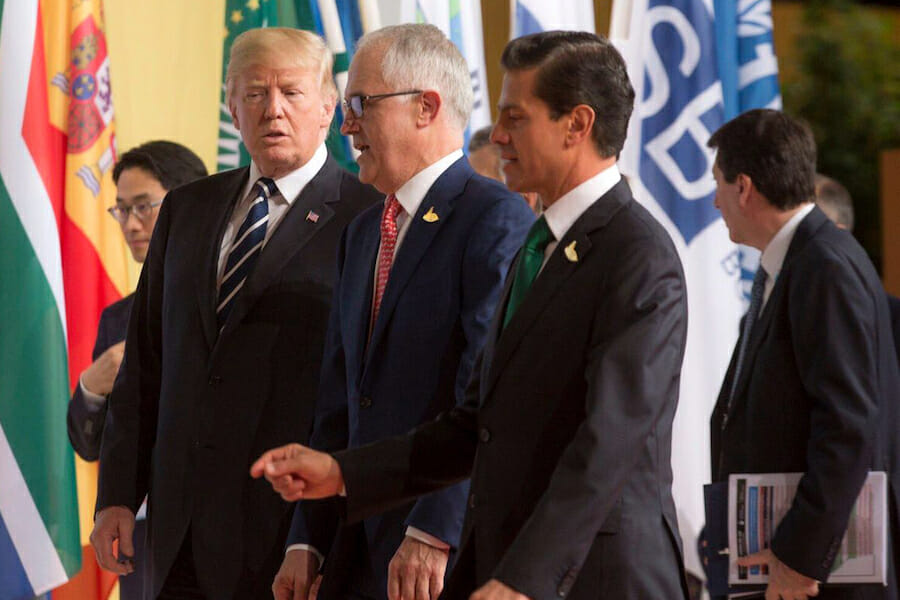
Why NAFTA Still Matters
During the recent presidential election, Donald Trump mobilized American workers against free trade, with a particular emphasis on the North American Free Trade Agreement, or NAFTA. Yet the majority of Americans can’t pinpoint what NAFTA does, or how it affects them.
Our free trade agreement with Canada and Mexico accounts for over $1 trillion in trade. That’s a billion dollars in trade every eight hours, every day of the year. Canada and Mexico are the largest importers of US goods and services. NAFTA is not perfect and also needs updating since its 1994 signing — which is why we are currently renegotiating to address some of its problems. However, the current administration’s indifference towards NAFTA is worrying. The US should not withdraw from NAFTA because it is critical to our economy, our jobs, and our future.
First, Americans have benefited from lower prices. When you go to the grocery store, the low prices you enjoy are because of NAFTA. When you fill up your car at the gas station, your prices are lower because of NAFTA. It removed tariffs on oil imports, reducing our reliance on oil from the Middle East and Venezuela. These changes can be hard to quantify, but they positively affect every American, especially those in the lowest income bracket.
Second, Americans have profited from the creation of new jobs. By some estimates, 5 million American jobs are linked to NAFTA. A new generation of farmers, bankers, and small business owners exists today because of the trade opportunities of NAFTA. Businesses have built supply chains that span throughout the continent, so each country is able to specialize in its comparative advantage. While it is easy to get caught up in trade deficits, this statistic does not accurately represent the reality of how trade operates today. Our imports and exports contain components produced in America, Mexico, and Canada. If NAFTA ended, major economic disruptions would occur. The loss of this agreement would harm the livelihood of millions of Americans.
Third, Mexico and Canada are America’s allies. Fostering positive relations with them is essential to our security. NAFTA has increased cooperation between our three countries in areas such as crime, border security, and migration. Our regional trade bloc has allowed us to compete with the European Union and China. In a globalized world, we cannot expect to be successful alone.
In the days ahead, technology and automation will transform our society. These changes cannot be stopped, but their effects can be reduced through retraining programs to help workers adjust. That is the right approach to economic transition and change. Withdrawing from NAFTA will not bring back lost jobs. It can be satisfying to blame other countries for our domestic problems, but we cannot solve those problems by isolating ourselves from the world.
The aversion of the United States to trade deals is causing us to forgo our position of leadership. A recent summit in Vietnam revived the Trans-Pacific Partnership (TPP) from which the Trump administration withdrew. However, a key player was missing, the United States. We can give priority to American interests only if we take our rightful place at the trade negotiating table.
We have overcome the hardships of the great recession, and we have come out of it stronger. The economic anxieties of the past are receding and our economy is now growing at an energetic pace. The goal of our NAFTA negotiations should be to benefit American workers. This can be done by improving the agreement, not withdrawing from it. The United States should remain in NAFTA to build a more prosperous future for all.
